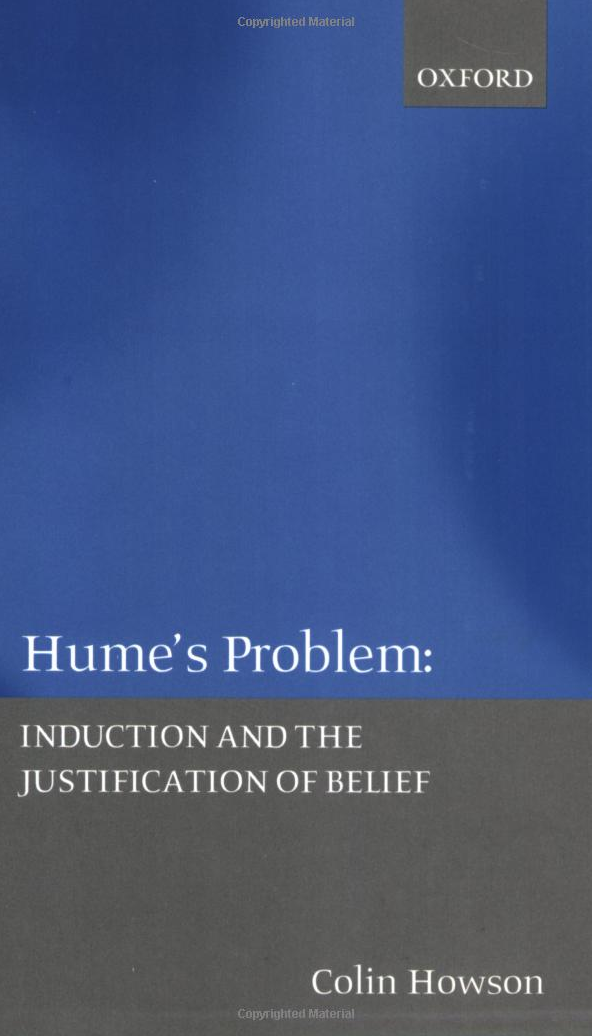“Different Bayesians commend different versions of the simplicity postulate (see e.g. Swinburne 1979). But whatever notion of simplicity one thinks fits a simplicity postulate best, assigning priors in accordance with it goes beyond the bounds of Bayesian inference construed as logically sound inference.”
It was nice to see that Howson has read Swinburne. He references his 1979 book entitled The Existence of God which was a little surprising given Howson’s philosophical commitments. Earlier Howson had dismissed religious responses to the problem of induction rather flippantly:
Given that unaided reason, as Hume should take the credit for pointing out, could not have led us to this epistemic cornucopia, our achieving it is either an incredible accident, or there is some systematic and reliable guidance at work. The religious explanation quite properly no longer commands wide assent, and Darwinism supplies the explanatory deficit with the only account which it is scientifically respectable to accept.
The religious explanation to which Howson refers is an extraordinary broad-sweeping generalization. The only other theistic contribution to Swinburne Howson references in this book is Hilary Putnam, a Jewish philosopher at Harvard. As much respect as I have for both of those philosophers, Howson certainly could have chosen much better material. My suspicion is that he hasn’t actually read the available works on the subject from more sophisticated Christian philosophers. And if he was going to reference anything of Swinburne’s, I would have much more appreciated him dealing with his 1974 work, The Justification of Induction as it is much more to the point than the 1979 text Howson references.
James Anderson has a helpful and brief summary which I put to audio over a decade ago. Interestingly, I just found someone copied my audio and uploaded it on Vimeo, attributing the audio to James himself. Nice. But I suspect James has a much more refined voice.
Interestingly, Howson also references Ludwig von Mises brother Richard, who I was previously not aware existed. Richard seems to have had a special talent for probability theory, which makes me wonder what the von Mises household must have looked like in the early years.

